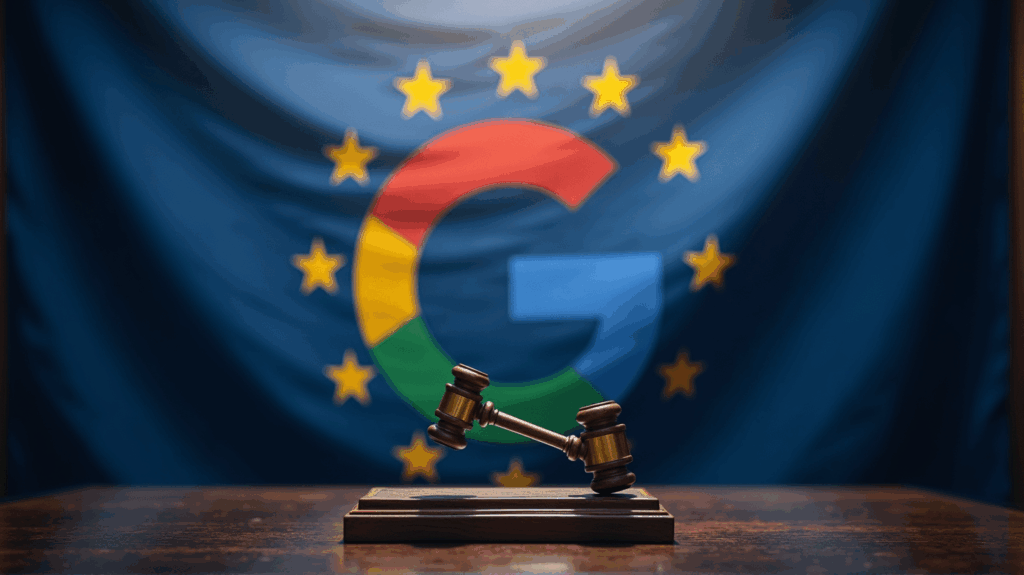In the digital age, where tech giants wield unprecedented power, a storm is brewing in Europe. The Independent Publishers Alliance, backed by two formidable advocacy groups — Movement for an Open Web and Foxglove Legal Community Interest Company — has launched an antitrust complaint against Google’s AI Overview. The complaint claims that this tool threatens the very essence of independent journalism.
The allegations center on the accusation that Google’s AI-generated summaries overshadow original content from independent publishers. By appearing at the top of search results, these summaries allegedly divert traffic away from the original sources, suppressing smaller publishers’ reach and revenue.
“AI Overviews are theft,” lambasts Tim Cowen, co-founder of Movement for an Open Web. “They appropriate publishers’ content, stifling traffic before it reaches the original site.”
The Battle for Autonomy: Content and Control
At the heart of this dispute is the contention over control. Publishers find themselves in a dilemma, forced to allow Google to utilize their content for training its AI, lest they risk losing visibility in Google’s all-important search results. As Rosa Curling, co-executive director at Foxglove, passionately argues,
“Independent news faces an existential threat: Google’s AI Overviews.”
This development follows a series of global discussions about the influence of tech giants on media landscapes. The issue of control over content is not new, but the rise of AI has intensified the debate. Historically, similar concerns have been raised about Google’s dominance in search and advertising markets, prompting regulatory scrutiny worldwide.
Google’s Defense: A Denial of Allegations
Google stands its ground, refuting claims that AI Overviews undercut viewership. A spokesperson conveyed to Reuters,
“These AI tools foster inquiries and thus create pathways for content discovery, rather than stifling it.”
Google’s previous brushes with similar allegations in the U.S. have only intensified global scrutiny over its practices.
The company argues that its AI tools are designed to complement, not compete with, original content. By offering summaries, Google claims it enhances user engagement and directs more traffic to the original publishers. However, critics argue that this model disproportionately benefits larger entities that can afford to optimize their content for AI-driven platforms.
The Implications of Power: A Global Perspective
This case echoes a larger narrative about the role of tech behemoths in shaping information distribution. For the European Commission, the complaint sets the stage for a pivotal decision that could redefine digital landscapes, not just in Europe, but globally. According to Broadband Breakfast, these proceedings may set a precedent for how AI and original journalism co-exist.
With stakes this high, the world watches as regulatory bodies weigh the delicate balance between technological innovation and fair competition. The outcome of this case could influence future regulations on AI and digital content, impacting how news is consumed and monetized across the globe.
As independent publishers hold their breaths, the question remains: will the EU tip the scales in favor of David or Goliath? The decision could either bolster the position of independent journalism or further entrench the dominance of tech giants in the digital news ecosystem.
 Ford’s Most Powerful Trucks of 2025: A Horsepower Showdown
Ford’s Most Powerful Trucks of 2025: A Horsepower Showdown Nvidia Offers Free Adobe Creative Cloud Access with Key Conditions
Nvidia Offers Free Adobe Creative Cloud Access with Key Conditions RFK Jr. Halts U.S. Funding for Gavi, Impacting Global Vaccination Efforts
RFK Jr. Halts U.S. Funding for Gavi, Impacting Global Vaccination Efforts Behold Ventures Secures $59.2M to Boost European Game Development
Behold Ventures Secures $59.2M to Boost European Game Development Baseus Launches EnerCore: A New Era of Cable-Free Charging Solutions
Baseus Launches EnerCore: A New Era of Cable-Free Charging Solutions